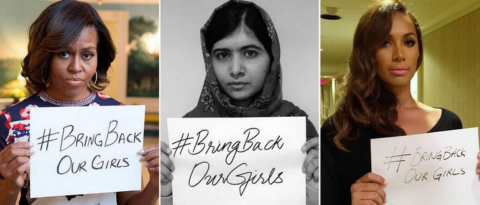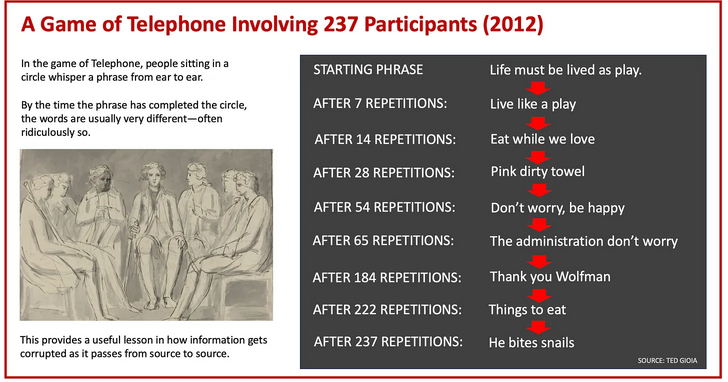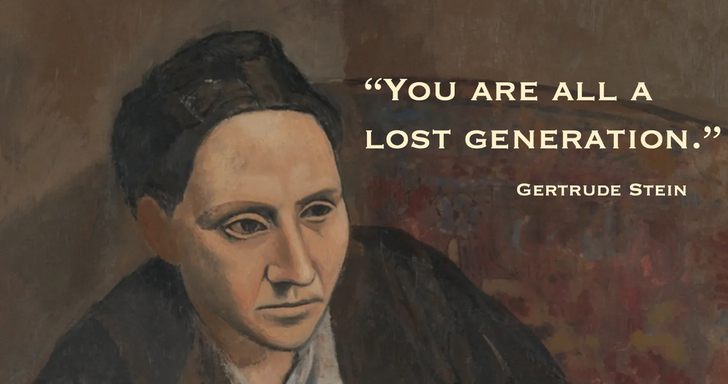I dress casually in the summer, because it’s hot. But for the last few years I’ve returned to good slacks and decent shoes and a crisp shirt and a tie. Grown-up clothes. Dad clothes. A man ought to be able to put on a shirt and tie without thinking he’s putting on a costume to deal with The Man; he should regard it as the Rainments of Masculinity, the costume we wear to project the impression of seriousness. If we’re not serious, it’ll be apparent quite soon. Likewise if we’re a peacock, a grifter, a poseur, a drone, a cog — the uniform only says that you’re part of the hard plain world, not whether or not you really belong there. I just know that I feel different in a shirt and tie. I stand up straighter. I don’t feel as though I’m owed more respect; on the contrary, I feel obliged to be more respectful. It’s hard to describe, but to paraphrase a drunken Marge Simpson after six Long Island Iced Teas — you guys in the audience, you know what I’m talking about.
James Lileks, Screedblog, 2005-07-25.
September 9, 2024
QotD: Clothing
August 30, 2024
The urge to power
At Mindset Shifts, Barry Brownstein explains why the urge to gain power over other people is particularly strong in those who don’t have meaningful lives of their own:

King Louis XIV, the “Sun King”.
Portrait by Hyacinthe Rigaud (1659-1743) sometime in 1700 or 1701 from the Louvre via Wikimedia Commons.
One of my more memorable exchanges with a student came in a principles of economics class. Part of the assignment for that week was chapters from Matt Ridley’s The Rational Optimist. Ridley compared the living standards of an average worker today with those of The Sun King, Louis XIV, in 1700. Some of my more ahistorical students were incredulous at Ridley’s description of the grinding poverty of the average person just a few centuries ago.
The King had an opulent lifestyle compared to others. Louis had an astonishing 498 workers preparing each of his meals. Yet his standard of living was still a fraction of what we experience today.
Ridley outlined the miracles of specialization and exchange in our time — an everyday cornucopia at the supermarket, modern communications and transportation, clothing to suit every taste. If we remove our blinders and see how many individuals provide services to us, Ridley concludes we have “far more than 498 servants at [our] immediate beck and call”.
Then, the memorable exchange occurred. One student shared that he would prefer to live in 1700, if he had more money than others and power over them. My first reaction was amusement; I thought the student was practicing his deadpan humor skills. He wasn’t. For him, having power was an attribute of a meaningful life.
If only my student’s mindset were an aberration.
During the reign of Louis XIV, French mathematician and philosopher Blaise Pascal diagnosed why some lust for power. In his Pensées, Pascal wrote, “I have often said that the sole cause of man’s unhappiness is that he does not know how to stay quietly in his room”. Pascal explained that, out of the inability to sit alone, arises the human tendency to seek power as a diversion.
Pascal asks us to imagine a king with “all the blessings with which you could be endowed”. A king, Pascal told us, if he has no “diversions” from his thinking, will “ponder and reflect on what he is”. Pascal’s hypothetical king will be miserable because he “is bound to start thinking of all the threats facing him, of possible revolts, finally of inescapable death and disease”.
“What people want is not the easy peaceful life that allows us to think of our unhappy condition.” That is why “war and high office are so popular”, Pascal argued.
Pascal argues individuals seek to be “diverted from thinking of what they are”. I would argue a better choice of words is what they have made of themselves.
I’ll let the reader decide how many modern politicians Pascal’s ideas apply to. With Pascal’s insight, we understand why conflict is a feature of politics and not a bug.
Pascal spares no one’s feelings. Some “seek external diversion and occupation, and this is the result of their constant sense of wretchedness”. For them, “rest proves intolerable because of the boredom it produces. [They] must get away from it and crave excitement.”
Let that sink in. A person able to exercise coercive power can use their morally undeveloped “wretched” mind to create endless misery for others merely because exercising power distracts them from their failures as human beings.
August 26, 2024
David Friedman – “my fargroup … are being attacked by my outgroup. My enemy’s enemy …”
I’m much of David Friedman‘s opinion on the candidates for both the Democratic and Republican parties in the current US presidential election … and I also find myself leaning more toward Trump even though his re-election would almost certainly be worse for Canada:

Donald Trump, surrounded by Secret Service agents, raises his fist after an attempt on his life during a campaign speech in Butler, PA on 13 July, 2024.
My opinion of the election is “a plague on both your houses”. Kamala Harris is an extreme representative of an ideology I have opposed for most of my life. Donald Trump has three major positions on two of which, immigration and trade, he manages to be even worse than his opponent. While I have some sympathy for his views on the third — I have been arguing against an interventionist foreign policy for something over fifty years now — I do not trust him to execute a consistent and competent alternative. His disinterest in whether what he says is true, extreme even for a politician, I find offensive.
That is my intellectual view of the matter. It is not my emotional view. Reading news stories and observing the effect on my feelings, I note that I am reacting like a Trump partisan. Poll results that look good for him make me happy, poll results that look bad for him make me sad. Accounts of outrageous statements by Trump or Vance I ignore — I don’t expect them to tell the truth. Accounts of demagoguery by Harris or Waltz arouse feelings of indignation. If Harris wins I will feel disappointed. If Trump wins I will feel relieved, at least until the first outrageous thing he does.
The explanation of my inconsistent reaction is provided by Scott Alexander in “I Can Tolerate Anything Except The Outgroup“, one of the best of his many good essays. In it he points out that someone’s outgroup, the group for whom he feels and expresses strongly negative views, is typically made up not of people distant from him, geographically and intellectually, but of people close. The outgroup of the Nazis was not their Japanese allies or the Chinese the Japanese were fighting, it was German Jews, people with the same language and, in most respects, the same appearance and culture. The outgroup of American leftists is not Muslim fundamentalists but American conservatives.
Conservatives have doubts about gay marriage. Muslim fundamentalists view homosexual intercourse as a capital offense.1 American conservatives would like their schools to be more tolerant of creationism. Muslim fundamentalists want their schools to teach the truth of Islam. And yet, when conservatives criticize Muslims, leftists defend them. When Muslims kill Jews and Jews respond by killing Muslims, it is the Muslims that the American leftists support, the Jews that they blame — although Israelis have much more in common, ideologically as well as culturally, with American leftists than Palestinians do.
We think of groups close to us in Near Mode, judging them on their merits as useful allies or dangerous enemies. We think of more distant groups in Far Mode – usually, we exoticize them. Sometimes it’s positive exoticization of the Noble Savage variety (understood so broadly that our treatment of Tibetans counts as an example of the trope). Other times it’s negative exoticization, treating them as cartoonish stereotypes of evil who are more funny or fascinating than repulsive. Take Genghis Khan – objectively he was one of the most evil people of all time, killing millions of victims, but since we think of him in Far Mode he becomes fascinating or even perversely admirable – “wow, that was one impressively bloodthirsty warlord”. (Scott Alexander, “Post-Partisanship Is Hyper-Partisanship“)
Conservatives are the leftists’ outgroup, Muslims their far group. The far group can be ignored; large parts of the world are more sexist and more racist than any part of America but invisible to progressives campaigning against sexism and racism. The far group can even be supported, at least if the outgroup is attacking it. My enemy’s enemy is my friend. Muslim fundamentalists. Hamas.
Kamala Harris is an American leftist. American leftists are my outgroup. Trump and Vance are American populists. I disagree with their views, in some cases more than I disagree with the views of American leftists, but I have nothing against them, just as I have nothing against believing Catholics or Orthodox Jews or Black Muslims or believers in Christian Science.
Trump and his movement are my fargroup. They are being attacked by my outgroup. My enemy’s enemy …
1. In some times and places Muslim culture has been tolerant of homosexuality; there are two famous medieval essays on the relative attractions of homosexual and heterosexual intercourse and quite a lot of poetry celebrating homosexual love. But the religious doctrine, which fundamentalists take seriously, holds homosexuality to be forbidden.
August 12, 2024
QotD: The key attraction of video games to young men
That would explain video game escapism/addiction amongst men. It’s a little world where there are predictable rules and outcomes and one can succeed much easier than in the unpredictable real world with ever-changing rules.
I think this is a really important point deserving of more attention.
Yes. Video games are a drug aimed straight at the receptor that is male need for agency. They’re a superstimulus for it in exactly the same way that pornography is a superstimulus for desire.
I don’t have a policy prescription about this or anything. But it’s a connection that matters.
ESR, Twitter, 2024-05-06.
August 11, 2024
Tears are still a powerful weapon for female politicians
Janice Fiamengo on the tactic available to — and resorted to frequently — only females in politics, turning on the waterworks to generate sympathy and support:
Recently, a friend sent me a news article that illustrates, in small, the world of Anglophone politics, in which notions of what is owed to women, who are understood to be far more sensitive and fragile than men, operate alongside stern interdictions against stating that women are in any manner unsuited for strenuous, high stress roles.
Last week, an ABC News report detailed years-old allegations against a former aide to Josh Shapiro, the Governor of Pennsylvania who was, at the time of the article, one of Kamala Harris’s touted VP possibilities (she has since chosen Tim Walz, Governor of Minnesota). Shapiro’s former staffer, Mike Vereb, who resigned in 2023 over a sexual harassment allegation, is said to have brought a woman to tears in 2018 with threats made over the phone (“You will be less than nothing by the time Josh and I get done with you”, he is alleged to have said).
The woman, who runs an advocacy group, was left “weeping and in shock standing alone in a parking lot”. She did not report the alleged incident until she heard about the aide’s resignation five years later.
[…]
With the staffer long gone from Shapiro’s administration, the story had legs only because it was about a man who made a woman cry.
The problem is that women do cry rather frequently in politics. And complain. And perform their sensitivity to criticisms, monikers, crude jokes, the faux terror of J6, and bantering innuendo. Far too often such women make politics about them as women and about the trouble men allegedly cause them.
Such was the case with Australian Prime Minister Julia Gillard, who earned plaudits from feminists in 2012 for a fury-filled speech in the House of Representatives about sexism, in which she accused the opposition leader of misogyny for a number of statements he’d made that were not at all misogynistic, including that women were likely under-represented in Australian institutions of power because men were “more adapted to exercise authority”. Gillard also said she was “personally offended” (a more serious state of affairs, one assumes, than simply being “offended”) by the opposition leader’s contention that abortion was “the easy way out”. (The text of her speech is here.) “Julia Gillard’s Attack on Sexism Hailed as Turning Point for Australian Women” ran one enthusiastic headline. And perhaps it was, signaling the point at which women in politics stopped thinking they should accommodate themselves to the rigors of public life, and decided that politicians must instead accommodate themselves to the rigors of women’s demands.
Even seemingly tough-as-nails Hillary Clinton has been allowed to go from interview to interview revisiting the now years-old indignity of her election loss in 2016, like a once-popular debutante who can’t believe she didn’t make the cheerleading squad. No man would ever be given such a prolonged pity party. Having contended for years that it was misogyny that prevented her from beating Donald Trump, she more recently pointed her finger at female voters’ failures of confidence: “They left me [in the final days of the campaign] because they just couldn’t take a risk on me, because as a woman, I’m supposed to be perfect“, she explained in May, 2024. No one seems to have informed Clinton that nothing reveals her crippling unsuitability for leadership than her embarrassing refusal to stop feeling sorry for herself.
And she is, alas, far from unique. Nicola Sturgeon, former First Minister of Scotland, sat and sobbed at last winter’s Covid-19 Inquiry in Edinburgh, deflecting critical questions about her government’s actions during the pandemic by proclaiming that she would carry the impact of them for as long as she lived. Forget the thousands of Scots who suffered or even died because of those decisions: the woman in charge was the one in need of compassion. Sturgeon had previously made a career of complaining about the sexism that allegedly put obstacles in the way of female politicians. Her focus on her own emotional discomfort at the Covid inquiry did more than any naysayers to indict the feminine style. How refreshing if either of these women could simply accept responsibility for their failures.
August 6, 2024
QotD: Malicious idiocy
God made not men to be malicious idiots. This is something we achieved entirely on our own. It is a living testament to Free Will; and those who attribute malice to the Devil may be too humble. We study his suggestions and run with them. True, he may have started it in scrimmage, but only a human can take it, as we say, “the full nine yards.”
Perhaps we should make it an Olympic event, with male, female, and trans competitions. It would be more fair than the other competitions for running, jumping, lifting weights, &c. No single country would dominate the sport, at least to begin with; some of the smallest nations could excel. Or if they didn’t, malicious idiots could charge the field, accusing judges and timekeepers of racism and hate crimes, adding to the loathely spectacle: Citius! Altius! Fortius!
David Warren, “Off & running”, Essays in Idleness, 2019-11-22.
[NR: This QotD has become much more timely than it was when I scheduled it for today a few months ago.]
August 4, 2024
August 2, 2024
QotD: The essential target of ideological propaganda
The Soviets weren’t history’s first attempt at a totally ideologized society — that would be Revolutionary France — but as students of the French Revolution, the Bolsheviks concluded that Robespierre and the gang hadn’t done enough to get the masses onside. Thus the Soviets seemed to assume that they needed to propagandize everyone. The Nazis followed a similar trajectory, because they, like the Soviets, were ideologically committed to the idea that the laboring masses were the backbone of their movements.
The Third Reich didn’t last long enough to figure it out, but in their 70-odd years the Soviets learned that “the masses” can be more or less ignored. They’re no threat to the regime. Your average Soviet “citizen” — Ivan Sixpack — would follow pretty much any rule, so long as he had a steady and predictable life course. That’s no slander on Ivan; it’s just the way people are. If you want proof, go look around — if I’d told you, back in the summer of 2019, about all the masks and the social distancing and the lockdowns and everything else, you’d have laughed at me. “There will be blood in the streets! No one will stand for it!”
The reaction of “the masses” (a term I hate; it’s patronizing, but it’ll have to do) to COVID was instructive: They either did as they were told, with nary a peep of complaint, or they simply ignored it … with nary a peep of complaint. From the rulers’ perspective, either one was fine, because they’re functionally the same thing. We all know that whatever the ruling class thought they were going to get out of the Kung Flu panic — and it’s not at all clear; we’ll get there — “public health”, as in the actual health of real members of the public, was nowhere on the list. As with “climate change” and all their other “crises”, their highly visible behavior showed how seriously they took it — which was, of course, not at all.
Indeed, from the rulers’ perspective, it was actually better that some large fraction of the underclass didn’t comply — that way, the mental energy of the Karens was channeled down, not up. Karen could start complaining about Whitmer, Newsom, and the rest not living by their own rules, and had she done so, that might’ve posed a problem for the rulers. But thanks to the maskless proles (and, of course, asshole class traitors like me), Karen always had a bunch of much softer targets to hector.
That’s the function of “propaganda” in my sense. It’s designed to create a narrative, the purpose of which is to channel dissatisfaction down the social scale.
What the Soviets learned, and their SJWs successors have internalized, is that you really only need a small cadre of “middle class” (for lack of a better term) producers to keep things running. Those are the targets of narrative-reinforcing propaganda.
Indeed, it’s only a subset of that already small fraction that needs to be propagandized. As the Soviets quickly learned, true technical experts are more or less ideology-proof. That’s because their technical expertise takes up all their time; they’ve oriented their personalities around it. You could read a novel like Red Plenty to get the sense of it (Z Man has a review somewhere if you want it), but I suggest a much easier path: Watch the fun old movie Boiler Room, with Giovanni Ribisi, Vin Diesel, and in a brief but memorable scene, Ben Affleck. I’m sure that seems odd — it’s a movie about sell-at-all-costs stockbrokers, based loosely on Jordan Belfort’s Stratton Oakmont scam; what could be more explicitly capitalist?
But note how they live: They own ludicrous cars and live in huge mansions, but the cars hardly get driven, and the mansions are unfurnished. There’s a scene where they all get together in Vin Diesel’s living room to watch a movie (Wall Street, natch). There’s a huge tv and a couch, but everything else is boxed up, and they’re eating takeout pizza. Giovanni Ribisi says something like “did you just move in this weekend?” and the other guys say no, he’s been living here for years, he just never got around to unpacking his stuff. That’s the mindset of the true technical intelligentsia. Those stockbrokers think they’re doing it for the money, and so they have the outward trappings of rich people, but they’re really doing it because that’s who they are — they’d be just as deliriously happy competing for subway tokens or scraps of confetti, so long as they had one more scrap than the guy on the next phone.
Given that, the only group that really needs to be propagandized is — you guessed it — Karen. The entire narrative of COVID was very obviously designed by hormonal cat ladies, for hormonal cat ladies. Cards on the table: Though I thought Kung Flu was overblown and ridiculous from the beginning, since I know a little history, I didn’t base my conclusions on my reading in the medical journals. I didn’t read medical journals, and unless you’re a doctor I bet you didn’t, either. My opposition to the Kung Flu panic was entirely visceral: THIS IS MEAN GIRL SHIT.
Severian, “Narrative Collapse III: Magic Masks”, Rotten Chestnuts, 2021-07-07.
August 1, 2024
“Donald Trump isn’t a real man, because Hulk Hogan”
It’s always appropriate to criticize public figures — it goes with the job — but you actually should find things to criticize when you do it, otherwise it comes across as lazy bitching:
I’m a charter member of the “no one is above criticism” club. Everyone is fair game. People who run for office are really fair game. So I think it’s just fine to criticize Donald Trump, and to criticize JD Vance, and to criticize Trump/Vance 2024.
But what’s so obvious, over and over again, is that the people writing the most insistent criticism are playing critic. They know that they’re supposed to say that Donald Trump is very very very bad, so they … do that? A lot? But the substance of the criticism tends, with remarkable frequency, to be a set of non-sequiturs and self-refuting rhetorical dead-ends. They’re criticizing because they’re supposed to, not because they have criticisms to offer.
Take David French. Please. Here’s his latest: Donald Trump isn’t a real man, because Hulk Hogan.
The I-didn’t-think-this-through flavor of this piece can’t be exaggerated. It makes so little sense, so poorly, with such odd structure and framing, that it nears the level of Thomas Friedmanism. David French doesn’t know anything, or understand anything, but he really throws himself into it.
So.
Hulk Hogan, Kid Rock, and Dana White were at the Republican National Convention, French writes, so the Republicans are being macho, unlike Democrats, who are demonstrating a style of manhood that focuses on being kind, decent, and nurturing. Republican manhood is about complaints and empty rage; Democratic manhood is about building things and caring for others. Making the comparison concrete, French explicitly compares the macho grievance artist Trump to precisely four wonderfully gentle and caring men: Admiral William McRaven, the US Senator and former astronaut and fighter pilot Mark Kelly, “Mark Hertling, my former division commander in Iraq”, and the former Marine Corps General and Secretary of Defense James Mattis. Those four men are the model of a masculinity that nurtures, loves, and builds; Trump is the model of a masculinity that only destroys and tears down. David French hates machismo, so the list of men he admires is made up entirely of combat arms officers.
Do you … see the problem? Because David French doesn’t. At all. Donald Trump is a real estate developer, someone who spent his entire adult life actually building things:
It’s just fine to criticize Trump as a businessman, if you feel inclined to do that. But he’s a builder and a developer; that’s his actual background. He makes things. He spent his life making things. And his political message is about making things and protecting people who make things, whether you agree with the specifics of his policy arguments or not
QotD: Sex and dating in the internet dating age
… as they encounter each other in the chambers of Tinder, Bumble, Hinge and OkCupid, the climate between men and women is frosty. Everyone is cross and fed up with everyone else for being so rubbish that they have to keep swiping.
In 1996, Helen Fielding’s Bridget Jones helped women realise that half the human race (men) might usefully be called “fuckwits” when it came to dating and romance. The dynamics of internet dating, with its illusion of graspable sexual paradise, has either created a new tsunami of apparent fuckwits, or it has made the sheer extent of them inescapable.
Meanwhile, the boredom and jadedness stitched into heavy use of apps (“nope”, “like”, “nope”, “nope”, “nope”, “like”) has produced a ubiquitous undercurrent of queasy unpleasantness. The result is that men, formerly seen as an alternating source of fun, trouble and heartbreak, become “men: ugh”. Women, once the promised land for many a Romeo, become bitches, gold-diggers, game-players, and, most significantly, for a depressing bloc known as “women: meh”.
This sexual stand-off, characterised by simmering distrust and putrid fatigue, oozes off internet dating portals. I’ve often found myself, after a night of binge-scrolling, surprised to remember that dating is filed under “romance”, which is supposed to be — at least at the start — a little about positive, fuzzy feelings or the potential to develop them.
Zoe Strimpel, “Why the young are falling out of love with sex”, UnHerd, 2019-11-25.
July 27, 2024
QotD: The academic “grinder”
A “grinder” isn’t merely a guy who studies hard. I knew a dude in college, for instance, who had such phenomenal self-discipline that he’d walk off the basketball court practically in the middle of a game. It’s 7:30, so it’s study time; if we’re still playing at 10, he’ll join back in.
Looking back on it, homeboy was more than a little “on the spectrum”, as the kids say nowadays, but he wasn’t a grinder. Nor do long hours, in themselves, make a grinder — med students, for instance, work in the neighborhood of 60-75 hours a week, but though there are lots of grinders in medical school, not all med students are grinders. Long hours in the lab just go with the territory.
Indeed, actually working hard is almost an exclusion criterion for grinder-ness. Grinders ostentatiously spend many, many hours hitting the books, but it’s almost literally hitting the books. They “work” the Latin way — lots of activity, almost no accomplishment. Put a big honking stack of the largest, mustiest tomes you can find in front of you in your study carrel. Pick one up, flip through it, take one note, then rotate it to the bottom of the stack. Do this for hours on end, always making sure that your stack is flush with the wall, so that everyone in the room can see how many books you have, and how diligently you’re “taking notes”. That’s a grinder.
And cheat your ass off, it goes without saying. In my day, when dinosaurs roamed the earth and “the Internet” was a way for Defense Department nerds to exchange missile schematics with one another, the preferred method was with a graphing calculator. Your dishwasher has more hard disk space than those things, but the mere presence of memory capacity made it ideal for cheating, providing you could come up with some elaborate shorthand to cram all the material in … and providing, of course, you could use it. My friends, you have never seen true comedy until you’ve seen some sweaty Chinese kid begging the teacher to be allowed to use his graphing calculator in Engrish class. Quick, what’s the cosine of MacBeth?
And speaking of begging, that’s the final diagnostic criterion. Have you polished so many apples, your fingers are permanently stained red? Are you so far up the guidance counselor’s ass that you’re banging your skull on her uvula? Have you kissed so much butt, you’ve got a mouth like a lamprey? Would you cheerfully murder your best friend’s dog if it would get you an extra 0.02 on your GPA? Then you, my friend, are a grinder.
Severian, “The Grinder Mindset [expanded]”, Rotten Chestnuts, 2021-06-22.
July 21, 2024
QotD: There’s no recovery mode from being a Basic College Girl
Do you have any examples of BCGs recuperating?
Sadly, very few. Part of this is just in the nature of the biz — I don’t see too many former students out and about, since they all leave College Town for the big wide world — but I do know this: Scratch a Karen, find a BCG. In fact, you could go so far to say that “Karen” simply IS the BCG after she hits The Wall. The faster the impact, the bigger the Karen (this is a testable hypothesis — given that our gal Taylor Swift is currently impacting The Wall at about Mach 3, if I’m right, she’ll soon unleash the kraken of Karens on an unsuspecting world).
I also strongly suspect that BCGs can’t recover. As any shrink will tell you, Narcissistic and Borderline Personality Disorders are almost impossible to treat. For one thing, treatment requires believing that you have a problem, and believing you don’t have a problem is pretty much diagnostic of those two syndromes. And while I’m not sure the BCG is clinically diagnosable with either of those, what they actually are is close enough that I’m betting whatever therapies “work” on actual clinical cases would “work” on them … but see above.
Finally, I guess I can’t really blame the BCG for not realizing she’s got a problem, because she obviously doesn’t have a problem. Look around — society rewards this shit. AOC, for example, is going to be La Presidenta por Vida de los Estados Unidos here in a decade or so; if that’s a problem, I can’t really blame them for not fixing it. Eventually, of course, reality will intrude, and your BCG will be screaming for a real man to come save her … but, thanks to her BCG antics, there won’t be any real men around. Or, you know, we’ll all be in the OPFOR, so good luck with that, beeyatch.
Severian, “Friday Mailbag /Grab Bag”, Rotten Chestnuts, 2021-06-25.
July 13, 2024
Did you blink and miss Gender Empathy Gap Day?
Don’t worry, unlike so, so many other formal days (or months, or seasons …) in the calendar devoted to this or that or the other real and imagined causes, celebrations, or acknowledgements, Gender Empathy Gap Day isn’t observed anywhere:

Remember these examples of virtue signalling? Can you imagine them doing the same for boys or young men?
Image from The Fiamengo File.
Few people have heard of Gender Empathy Gap Day, a day inaugurated in Germany in 2018 to raise awareness about our societies’ remarkable indifference to the suffering of men and boys. Not surprisingly, it has no official status in any country.
Most people, if asked, will insist that it is women and girls who suffer. We expect men and boys to apologize for their advantages and educate themselves about issues affecting women and girls. Animus against men is socially acceptable, even approved. “I bathe in male tears” is a popular feminist slogan, and university professors write mainstream opinion pieces with unironic titles like “Why Can’t We Hate Men?”
The Gender Empathy Gap Day doesn’t advocate a contest over which sex has it worse. It does advocate recognition of our collective inability or unwillingness to see the full humanity of men.
Academic researchers Alice Eagly and Antonio Mladinic have compiled data showing that both females and males tend to have more positive associations with women than with men. Researchers have also confirmed a much higher in-group bias amongst women, meaning that women feel more empathy towards other women than towards men, while men also feel more empathy for women.
Whether it’s homelessness (61% male), homicide (78% male victims), suicide (79% male), workplace fatalities (93% male), prison incarceration (93% male), or a host of other issues, men and boys do suffer. Yet according to the research of Dr. Tania Reynolds, we tend to associate agency with maleness and the capacity for victimhood with femaleness, seeing men and boys as active doers rather than as sufferers deserving concern.
As a result, we are tolerant of harsh punishments for male criminal offenders, but not for women. In 2012, Sonja Starr, a professor of Law, published the results of her study of discrepancies in criminal sentencing that showed a very large gender gap in the punishment of women for the same crimes committed by men. Starr’s extensive study found an average 63% sentencing gap that harshly disadvantaged men. She also discovered that “Female arrestees are […] significantly likelier to avoid charges and convictions entirely, and twice as likely to avoid incarceration if convicted”.
The gap in punishment results because we all — including prosecutors, judges, and juries — incline to the belief that women who commit crimes were led into their law-breaking by others, usually men, and had limited choices because of poverty, childhood abuse, mental illness, or addiction. We hesitate to deprive young children of the care of their mothers, while we are content to see fathers behind bars. As Starr points out, however, male offenders have also “suffered serious hardships, have mental health or addiction issues, have minor children, and/or have ‘followed’ others onto a criminal path”.
Author Glen Poole has noted that such indifference to male difficulties is built right into the stories our society tells about itself. He points out that when a large number of men are killed — whether in war, accident, or natural disaster — mainstream news sources report on people killed, making the sex of the victims invisible. It is not news when men and boys die.
When women or girls are killed or harmed, they are rarely if ever referred to as people. Their suffering is news.
QotD: The need for social status
Human beings become more preoccupied with social status once our physical needs are met. In fact, research reveals that sociometric status (respect and admiration from peers) is more important for well-being than socioeconomic status. Furthermore, studies have shown that negative social judgment is associated with a spike in cortisol (hormone linked to stress) that is three times higher than non-social stressful situations. We feel pressure to build and maintain social status, and fear losing it.
It seems reasonable to think that the downtrodden might be most interested in obtaining status and money. But this is not the case. Inhabitants of prestigious institutions are even more interested than others in prestige and wealth. For many of them, that drive is how they reached their lofty positions in the first place. Fueling this interest, they’re surrounded by people just like them — their peers and competitors are also intelligent status-seekers. They persistently look for new ways to move upward and avoid moving downward. The French sociologist Émile Durkheim understood this when he wrote, “The more one has, the more one wants, since satisfactions received only stimulate instead of filling needs.” And indeed, a recent piece of research supports this: it is the upper class who are the most preoccupied with gaining wealth and status. In their paper, the researchers conclude, “relative to lower-class individuals, upper-class individuals have a greater desire for wealth and status … it is those who have more to start with (i.e., upper-class individuals) who also strive to acquire more wealth and status”. Plainly, high-status people desire status more than anyone else.
Furthermore, other research has found that absolute income does not have much effect on general life satisfaction. An increase in relative income, on the other hand, has a positive effect. Put differently, making more money isn’t important. What’s important is making more than others.
Rob Henderson, “Thorstein Veblen’s Theory of the Leisure Class — A Status Update”, Quillette, 2019-11-16.
July 10, 2024
QotD: Persuasion
But I really do not expect people to agree with me. People haven’t agreed with me as a soft Marxist, as a social engineering transport economist, as a quantitative economic historian, as a Chicago School economist, as a neoinstitutionalist, as a libertarian, as a global monetarist, as a free market feminist. No wonder they don’t agree with me as a rhetorician of science.
Of course, like most people, I do assume that those people are wrong and I am right. (And in sober truth — can I confide in you as a friend? — I am right.)
Deirdre McCloskey, “The Rhetoric of Economics”, 1998.
Hat tip to Grant “I can take a hint” McCracken.









